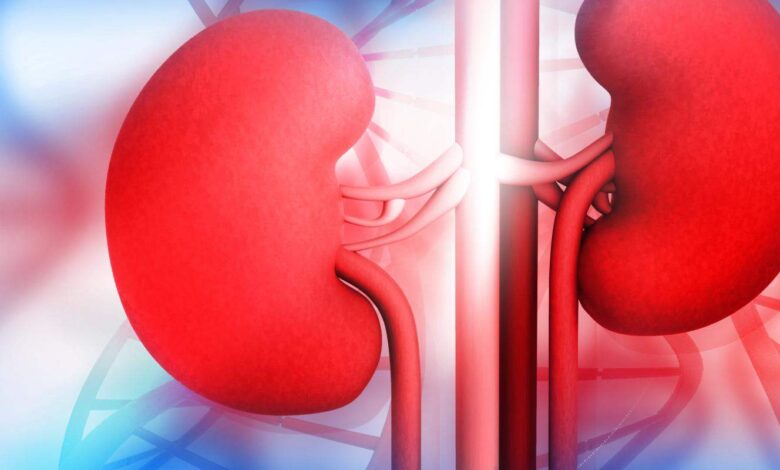Can Vitamin Deficiencies Worsen Kidney Disease?

Kidney disease is a serious health condition affecting millions worldwide, characterized by the gradual loss of kidney function over time. While various factors contribute to its progression, the role of vitamin deficiencies in exacerbating kidney disease is increasingly recognized.
Among the treatments available, Ketosteril tablets have gained attention for their potential to address these deficiencies and mitigate the progression of kidney disease. This article explores the relationship between vitamin deficiencies and kidney disease, focusing on the importance of proper nutrition and the role of Ketosteril tablets in managing this condition.
Understanding Kidney Disease
The kidneys play a crucial role in filtering waste products and excess fluids from the blood, maintaining electrolyte balance, and regulating blood pressure. Chronic kidney disease (CKD) occurs when these vital functions are compromised due to damage to the kidneys. Causes of kidney disease vary, including diabetes, hypertension, autoimmune diseases, and genetic factors. As CKD progresses, patients may experience symptoms such as fatigue, swelling, nausea, and difficulty concentrating.
Role of Vitamins in Kidney Health
Vitamins are essential micronutrients that play diverse roles in maintaining overall health, including kidney function. Vitamin deficiencies are common in individuals with kidney disease due to several factors, including dietary restrictions, malabsorption, and increased excretion of vitamins through urine. Deficiencies in vitamins such as vitamin D, vitamin B complex, and vitamin C can have profound effects on kidney function and overall health.
Vitamin D deficiency, for example, is prevalent in CKD patients and is associated with various complications, including bone disease (renal osteodystrophy), muscle weakness, and cardiovascular risk factors. Vitamin B complex deficiencies, including vitamins B6, B9 (folate), and B12, can lead to anemia, neuropathy, and cognitive impairment, all of which worsen the prognosis for kidney disease patients. Similarly, inadequate intake of vitamin C can impair immune function and exacerbate oxidative stress, further compromising kidney health.
Ketosteril Tablets
A Nutritional Intervention
Ketosteril tablets have emerged as a valuable adjunct therapy in managing CKD by addressing the nutritional deficiencies commonly observed in these patients. These tablets contain essential amino acids, keto acids, and other nutrients designed to compensate for the altered metabolism and nutrient losses associated with kidney disease. By providing a balanced mixture of amino acids and keto acids, ketosteril tablet helps optimize protein synthesis, reduce the accumulation of uremic toxins, and maintain nutritional status in CKD patients.
One of the key mechanisms by which Ketosteril exerts its beneficial effects is through the reduction of dietary protein intake. High-protein diets can exacerbate kidney damage by increasing the workload on the kidneys and promoting the accumulation of nitrogenous waste products. Ketosteril allows for a reduction in dietary protein intake without compromising essential amino acid supply, thereby alleviating the burden on the kidneys while supporting protein synthesis and tissue repair.
Furthermore, Ketosteril supplementation has been shown to improve metabolic acidosis, a common complication of CKD characterized by the accumulation of acidic substances in the blood. By providing keto acids that can be converted into bicarbonate, Ketosteril helps neutralize excess acid in the body, thus restoring acid-base balance and reducing the risk of acidosis-related complications.
Clinical Evidence and Considerations
Numerous clinical studies have demonstrated the efficacy of Ketosteril tablets in slowing the progression of CKD and improving clinical outcomes in patients with kidney disease. These studies have shown reductions in serum creatinine levels, improvements in nutritional parameters, and delays in the onset of dialysis or kidney transplantation in CKD patients treated with Ketosteril.
However, it’s essential to note that while Ketosteril can complement conventional therapies for CKD, it is not a standalone treatment. Optimal management of kidney disease requires a comprehensive approach that includes dietary modifications, lifestyle changes, pharmacological interventions, and regular monitoring of kidney function and nutritional status.
Conclusion
Vitamin deficiencies play a significant role in exacerbating kidney disease, contributing to complications and hastening disease progression. Proper nutrition, including supplementation with essential nutrients such as those provided by Ketosteril tablets, is essential for maintaining kidney health and improving outcomes in CKD patients. By addressing nutritional deficiencies and supporting metabolic balance, Ketosteril offers a valuable therapeutic option for managing kidney disease and improving the quality of life for affected individuals.



